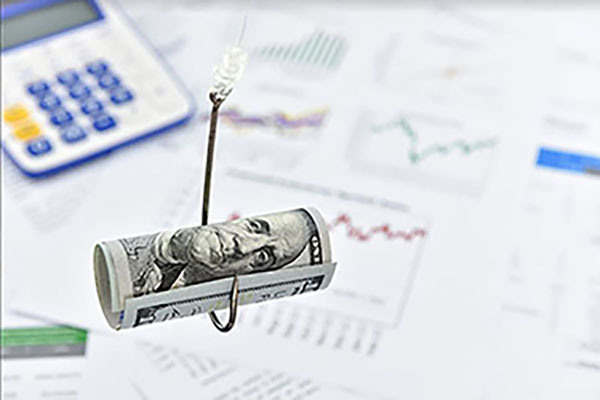Punitive Damages in South Carolina Personal Injury Lawsuits
Injured in an accident? Need help filing a punitive damages claim? Contact personal injury attorney John Peace to schedule a free, fully confidential review of your case: (864) 298-0500.

Do you remember when you were a kid and broke a rule? What happened? Your parents probably punished you. Parents usually discipline kids not only as punishment, but to deter them from bad behavior in the future.
Courts apply the same rationale to awarding punitive damages.
In the United States legal system, a court usually awards damages to make the victim whole. The court tries to restore what the victim lost, using financial compensation.
However, punitive damages go beyond making the victim whole.
Punitive damages accomplish two things:
- Punish the defendant for terrible behavior, and
- Deter others from committing a similar action.
If you’ve suffered a personal injury due to someone’s awful action, you may request punitive damages. Courts may be reluctant to award punitive damages, so it’s best to consult with an experienced personal injury attorney about your case.
Contact the Peace Law Firm for a free consultation with John Peace, a skilled attorney who has been helping injured clients for nearly 20 years.
Keep reading to learn more about punitive damages in South Carolina.
When Should You File a Punitive Damages Claim?
You should file for punitive damages along with your personal injury claim. Your attorney will help you calculate the following types of damages.
Economic Damages
Economic damages compensate you for financial expenses like medical bills, property damage, and lost wages.
Non-economic Damages
Non-economic damages compensate you for emotional harm like pain and suffering and loss of enjoyment.
Punitive Damages
Punitive damages punish the defendant and attempt to deter others from similar actions.
South Carolina law allows the court to award punitive damages if:
- Compensatory or nominal damages have been awarded; and
- You prove by clear and convincing evidence that your harm was the result of the defendant’s willful, wanton, or reckless behavior.
This means that you can’t receive punitive damages without receiving damages for an injury. Punitive damages may apply in a case where you sustained harm.
Wondering What Your Case is Worth? We Can Help. Let's Talk Today.
Injured in an accident? Need help filing a punitive damages claim? Submit the short form below Johnny Peace will review your case for free.
What Factors Are Used to Determine Punitive Damages?
A request for punitive damages in South Carolina requires a bifurcated trial. In the first stage of the trial, the judge or jury determines liability and your economic and non-economic damages, without hearing evidence that is solely related to punitive damages.
Then the judge or jury hears additional evidence relevant to the punitive damages award.
These factors help determine whether punitive damages are appropriate for your case:
- What was the defendant’s degree of fault?
- How much harm resulted from the accident?
- Had the defendant acted this way before?
- Was the defendant aware that the behavior was wrong?
- Did the defendant try to conceal their behavior?
- Did the defendant profit from their behavior?
- How much can the defendant pay?
- Will punitive damages be likely to deter others from committing similar actions?
- What other penalties has the defendant faced for the action?
After evaluating these factors, a judge or jury may decide to award punitive damages to both punish the defendant and deter others from committing terrible acts.
Just like other damages, the judge or jury determines the amount of punitive damages awarded.
What Is the Limit on Punitive Damages?
In South Carolina, the punitive damages cap is:
- $500,000, or
- Three times actual damages.
Courts apply the cap to whichever of these totals is greater.
However, in some situations, the court can consider higher punitive damages. The cap increases to four times the amount of compensatory damages or $2 million if:
- The wrongful conduct was motivated primarily by unreasonable financial gain, and the person responsible for making policy decisions on the defendant’s behalf knew the conduct was unreasonably dangerous and posed a high risk of injury; or
- The behavior that proximately caused the damages could be grounds for a felony conviction.
Additionally, a court can award unlimited punitive damages in these scenarios:
- The defendant intended to harm you;
- The defendant pled guilty or was convicted of a felony for the same act; or
- The defendant was substantially impaired by alcohol, drugs, or another intoxicant at the time.
Your complaint must request punitive damages in South Carolina if you want the court to consider them, but you can’t list a specific amount. The court determines the punitive damages appropriate for the defendant.
Contact a Personal Injury Attorney to Start Your Claim
If you’ve been injured due to someone’s intentional or negligent action, you can file a personal injury lawsuit.
Depending on the nature of your accident, you may receive several types of damages, including punitive damages. An experienced personal injury attorney, such as John Peace at the Peace Law Firm, can help you get fair injury compensation.
John has a background working in the insurance industry, so he knows what strategies insurance companies may use to avoid paying your claim. Fortunately for his clients, John knows how to fight those big insurance tactics.
Call (864) 298-0500 for a free consultation, where John will listen to your story and advise you of your legal options. Then John will negotiate with the insurance company, or take your case to trial, in an effort to get you maximum injury compensation.
